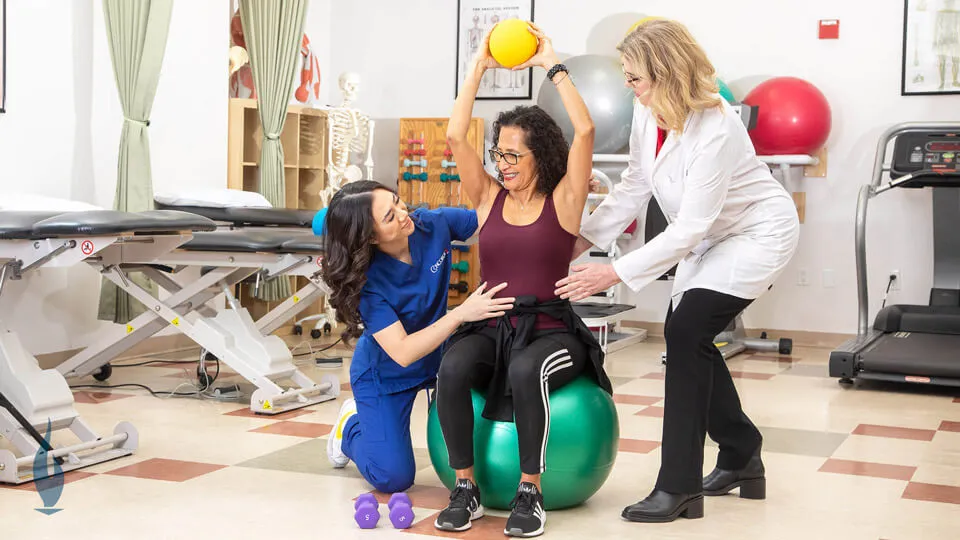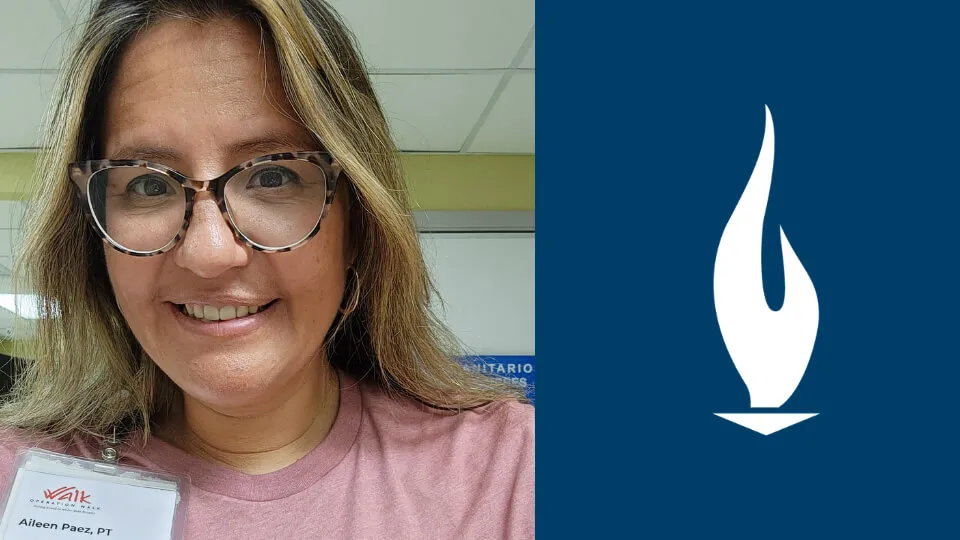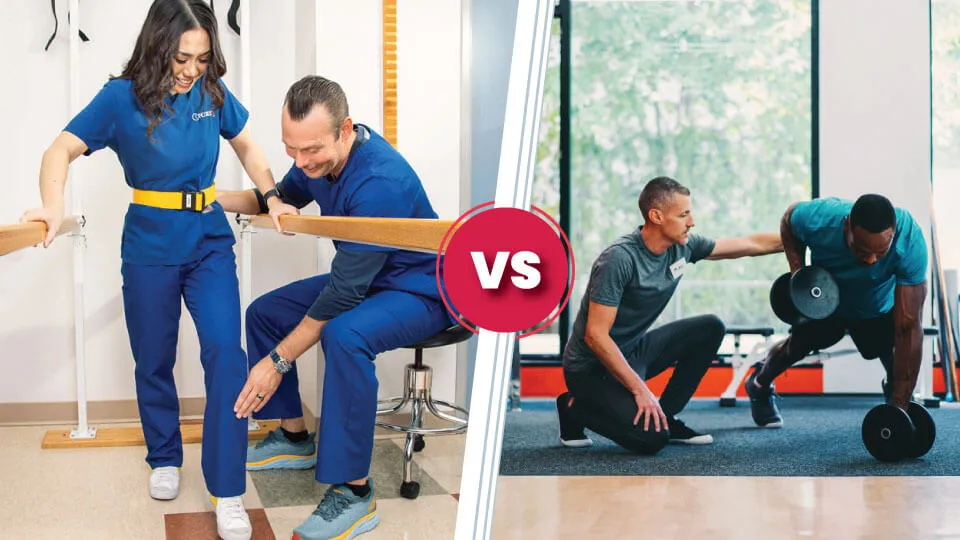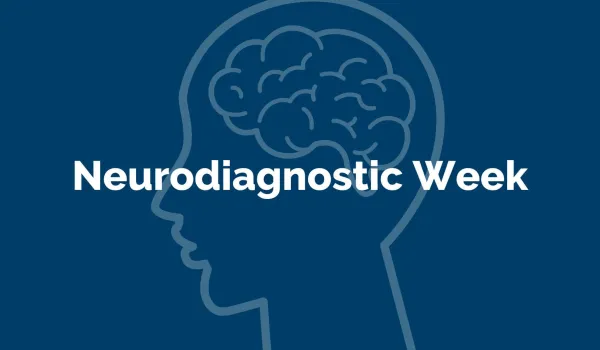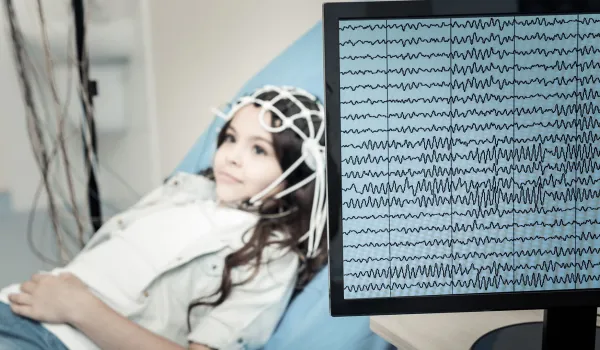Concorde Staff
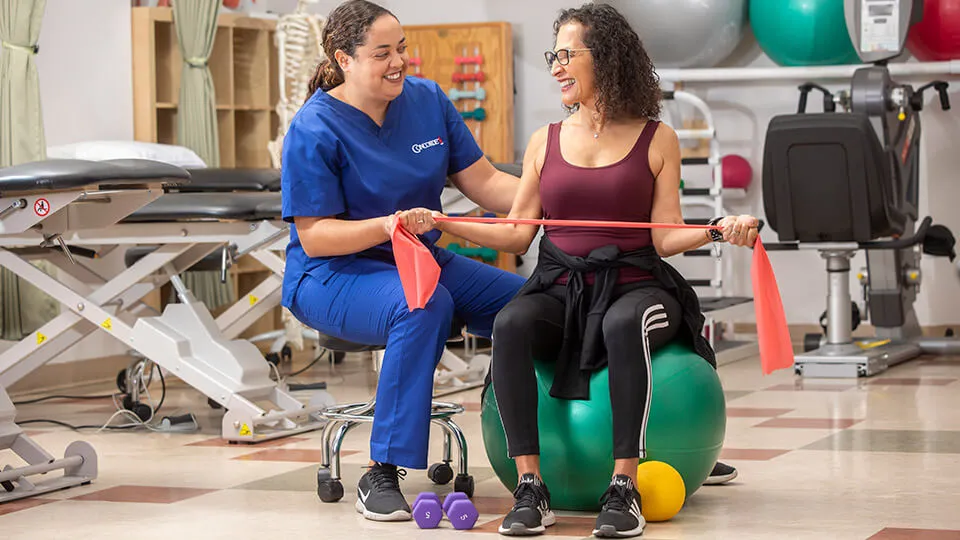
A Physical Therapist Assistant (PTA) play a crucial role in helping patients achieve their rehabilitation goals. PTAs work under the direction and supervision of Physical Therapists (PTs) to help patients who have injuries, disabilities, or other medical conditions that limit their ability to move and function. To become a physical therapist assistant, you must have completed a physical therapist assistant associate degree program. Most programs take up to 20 months to complete, like the one you'd find at Concorde Career College. Concorde also offers veterans military tuition support.
What Do Physical Therapy Assistants Do?

How To Become a Physical Therapist Assistant
Physical therapy assistants (1) provide a wide range of services, including therapeutic exercises, manual therapy, and assistive technologies, to help patients regain strength, mobility, and independence. According to the U.S. Bureau of Labor Statistics, as more and more attention is being paid to rehabilitation and preventative care, the demand for physical therapist assistants is expected to grow by 26% by 2032 (2).
Physical Therapist Assistant Work Settings
Where do physical therapist assistants work? Because physical therapy assistants work with patients of all ages and backgrounds, PTAs can expect to work in a wide range of health care locations. You'll find PTAs in hospitals, clinics, outpatient centers, and nursing homes. In addition, PTAs can also work with major and minor league sports teams, universities and other schools, and even community-based organizations.
Physical Therapist Assistant Typical Tasks and Responsibilities

Concord Career College Admissions
Interested In How To Become a Physical Therapist Assistant?
Click here to explore Physical Therapist Assistant programs near you!While each physical therapist assistant will have a varied range of job responsibilities and tasks to complete each day, there are many things one could expect on a regular basis (3). Daily or weekly job duties include:
- Assessing Patients: PTAs work with physical therapists to assess patients' range of motion, strength, and overall mobility. Oftentimes, they may use special tests and measurements to evaluate a patient's condition and develop a treatment plan.
- Developing Treatment Plans: PTAs work with physical therapists to develop treatment plans that are tailored to each patient's needs and goals. Treatment plans include a range of activities like specific exercises and manual therapy.
- Implementing Treatment Plans: PTAs work with patients to implement treatment plans, which may include demonstrating exercises, using manual therapy techniques, and implementing assistive technologies. Some examples of assistive technologies include wheelchairs, braces, and special computer equipment.
- Monitoring Progress: PTAs monitor patients' progress and make adjustments to treatment plans as needed. They may also document patient progress and report to physical therapists on a regular basis.
- Educating Patients and Their Families: PTAs educate patients and their families on how to continue their rehabilitation at home. They may provide instructions regarding exercises, assistive technologies, and other strategies to improve mobility and function.
- Performing Administrative Tasks: PTAs may perform administrative tasks, such as scheduling appointments, ordering supplies, and maintaining patient records.
PTAs Help With Large and Small Everyday Tasks
While the above list includes many big-picture tasks, a great physical therapy assistant will also assist with exercises and stretches, teach patients how to use equipment such as crutches, walkers, or wheelchairs, and even administer hot or cold packs for recovery. They also must adapt to their physical therapist and understand the best way to report a patient's progress, as well as find the best way to motivate and encourage each patient to help them stay motivated throughout their recovery process.
Skills Needed To Become a Physical Therapy Assistant
Beyond the associate program degree required to become a physical therapy assistant, there are some skills needed to become a successful PTA. Concorde Career College is a great place to hone these necessary skills.
- Interpersonal Skills: PTAs must be able to communicate effectively with patients, their families, and other health care professionals. They should be compassionate and empathetic, and be able to establish rapport with patients. Some patients and their families might be resistant to care, so finding a clear and patient way to get through to them is helpful.
- Physical Stamina: PTAs must have the physical stamina to stand, bend, and lift for extended periods of time. They may also need to assist patients in moving and exercising, which can require physical exertion. Some days might require more physical stamina than others, but being comfortable with an active day is an extremely valuable skill in this field.
- Attention to Detail: PTAs must pay close attention to detail to ensure that patients are performing exercises and using assistive technologies correctly. They must also monitor patients' progress and document any changes in their condition. A good PTA should take detailed notes to ensure proper progress and recovery for each patient.
- Problem-Solving Skills: PTAs must be able to problem-solve to address any challenges that may arise during treatment. They should be able to identify issues and develop strategies to overcome them.
- Flexibility: PTAs must be flexible and adaptable to meet the changing needs of their patients. They may need to adjust treatment plans based on the evolution of each patient's recovery. Understanding that no two people are alike and thus no two treatment plans are alike is a key skill in becoming a great physical therapist assistant.
PTAs Provide Key Link Between PT and Patient
Most PTAs can expect a fair amount of physicality in their work as they assist patients with their rehabilitation needs. Good communication skills are also critical, both in terms of listening to the physical therapist and patient, as well as giving out clear directions to the patient and clear progress reports to the physical therapist. Soft skills like problem-solving, attention to detail, and being comfortable with change on the fly also will be something each physical therapy assistant will employ on a daily basis.
Physical Therapy Assistant's Vital Role in Recovery

Why a PTA Is More Than a Personal Trainer
Physical therapist assistants play a vital role in helping patients recover from injuries and illnesses that affect their ability to move or perform daily activities. A good PTA possesses a combination of knowledge, skills, and personal qualities that enable them to provide effective and compassionate care to their patients.
Physical Therapy Assistant Dedication to Learning
A good PTA has a strong foundation of knowledge about the human body and how it works. They are familiar with anatomy, physiology, kinesiology, and other related subjects. This knowledge enables them to understand each patient's conditions and the treatments that are being used to address them. It also helps them to identify potential complications or risks that may arise during treatment and take appropriate measures to address them.
In addition to their knowledge base, a good PTA has a wide range of technical skills that they use to assist with patient care. They know how to use equipment and tools such as exercise machines, crutches, walkers, and other assistive devices. They also have the ability to perform various therapeutic exercises and stretches that are part of a patient's treatment plan. A good PTA is able to adapt these techniques to meet the specific needs of each patient, taking into account factors such as age, fitness level, and the severity of each patient's condition.
Physical Therapy Assistant and Communication Skills
Another important quality of a good PTA is excellent communication skills. They need to be able to effectively communicate with patients, physical therapists, and other members of the health care team. They must be able to explain treatment plans, answer questions, and provide reassurance and support to patients and their families who may be anxious or uncertain about their recovery. They also need to be able to provide detailed progress reports to the physical therapist and other health care professionals.
Compassion and empathy are also essential qualities of a good PTA. Patients who are recovering from injuries or illnesses often experience a wide range of emotions, including frustration, anxiety, and depression. A good PTA is able to recognize these emotions and provide patients with the emotional support they need to cope with their condition. They are patient, kind, and understanding, and they are always willing to go the extra mile to ensure that their patients are comfortable and well-cared for.
Ongoing Learning Is Key
Finally, a good PTA is committed to ongoing learning and professional development. They stay up-to-date with the latest advances in physical therapy techniques and equipment, and they actively seek out opportunities for continuing education and professional growth. This allows them to provide the highest level of care to their patients and to continually improve their skills and knowledge.
The next time you wonder, "what does a physical therapist do?" remember it begins and ends with helping each patient with their unique needs. There are endless ways that can be done, but with the skills and knowledge you'll take from a program like that at Concorde Career Colleges, each day will be filled with excitement and satisfaction. Also, be sure to check out Concorde's financial aid and scholarship programs to see if you qualify. Fast-track your career by becoming a student at Concorde!
Interested In How To Become a Physical Therapist Assistant?
Click here to explore Physical Therapist Assistant programs near you!
Footnotes:
(1). "Becoming a PTA," American Physical Therapy Association, https://www.apta.org/your-career/careers-in-physical-therapy/becoming-a-pta
(2). "Occupational Outlook Handbook: Physical Therapist and Aides," U.S. Bureau of Labor Statistics,
https://www.bls.gov/ooh/healthcare/physical-therapist-assistants-and-aides.htm#tab-6
(3). "Physical Therapy Assistant Associate Degree Program," Concord Career Colleges, Inc, /patient-care-programs/physical-therapist-assistant
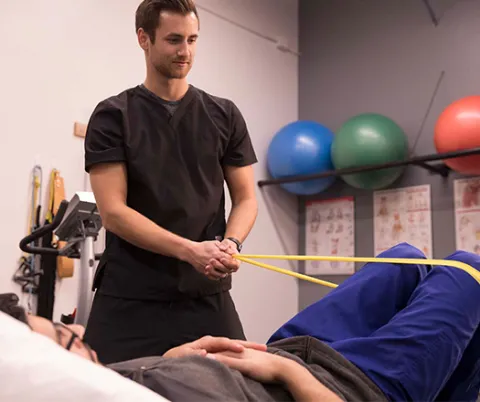
Take The Next Step Towards a Brighter Future
Interested in learning more about our Physical Therapist Assistant program? We have a Concorde representative ready to talk about what matters most to you. Get answers about start dates, curriculum, financial aid, scholarships and more!
